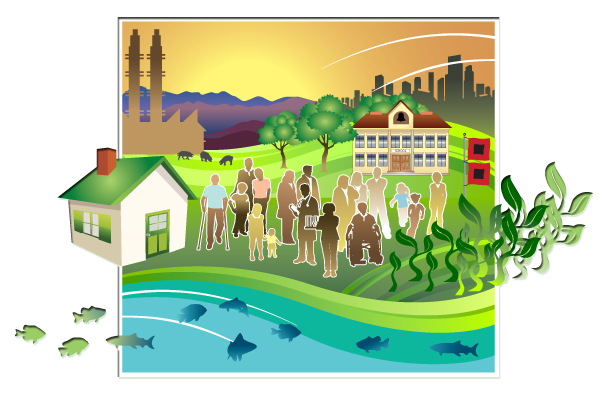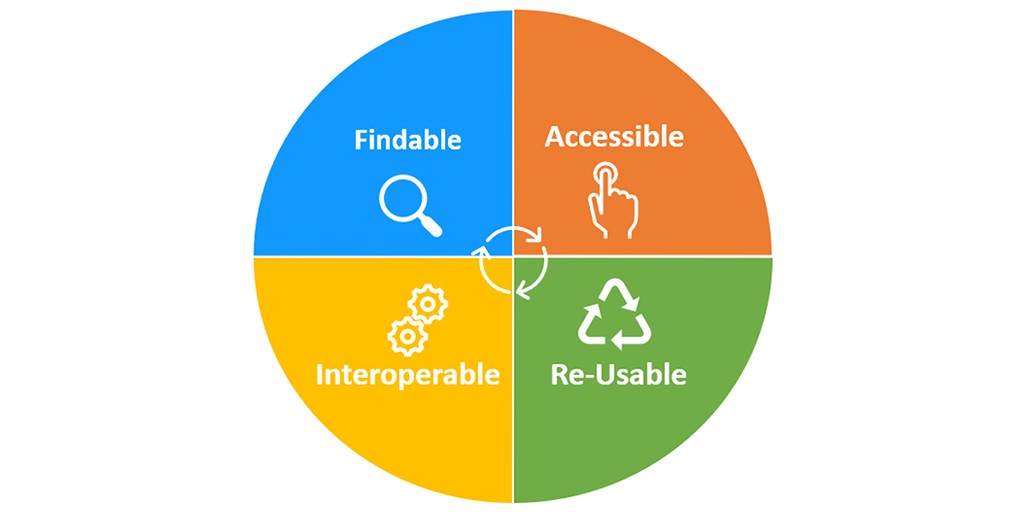A Tribal Citizen Science Project Benefits Drinking Water Quality and Builds Local Capacity
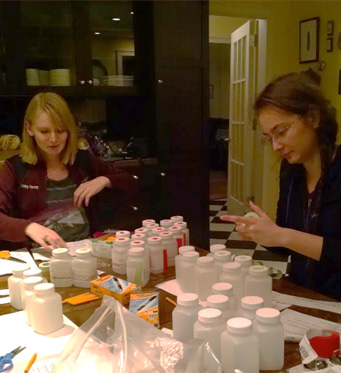
MIT graduate students Abby Harvey (left) and Tchelet Segev working with water collection kits.
(Photo courtesy of Kathleen Vandiver, Ph.D.)
Not all community-engaged research projects result in mutual capacity and trust building, but a participatory project that looked at drinking water quality in rural Maine accomplished just that. The study took place from 2017 to 2018 and involved the Sipayik Environmental Department (SED), a Passamaquoddy Tribal government department on the Sipayik reservation; researchers from the Massachusetts Institute of Technology (MIT); and residents from remote Maine communities, including the reservation.
The project was initiated when two MIT graduate students wanted to conduct research that would also benefit an environmental justice community. The students and three researchers from the SED launched a participatory science project in which residents of three remote Maine communities collected drinking water samples from their homes for arsenic and lead analysis. During the study, SED researchers acquired new research skills and enhanced the environmental public health literacy of their rural communities, while MIT researchers acquired community engagement skills and cultural insights. Additionally, trust was built between the communities and MIT. A paper published in late 2020 discusses the mutual capacity building aspect of the project in detail.
The Project’s Beginnings
Before deciding to focus on water quality, MIT researchers held discussions with the SED to gain a better understanding of community public health concerns. When drinking water safety issues quickly emerged as a concern, the SED and MIT researchers decided to analyze metals in both the municipally supplied water and private homeowners’ well water. The study area included three remote coastal communities in northeastern Maine, including the Sipayik reservation.
“We’d heard about the longstanding concerns about drinking water quality, and thought we could help address them,” said Kathleen Vandiver, Ph.D., director of the Community Outreach Education and Engagement Cores at both MIT’s Center for Environmental Health Sciences and Superfund Research Program. “But we wanted to do more than that. We knew we wouldn’t be able to answer all of the community’s questions with just one study, so we wanted to include a focus on the environmental health literacy topic of water quality standards. We also knew that learning by doing tends to increase peoples’ interest in a subject, and when you’ve increased peoples’ interest, they will continue to learn on their own.”
Building Mutual Capacity and Trust Between Maine Communities and Academia
To build capacity within the SED, the MIT team knew community members had to be engaged across the entire research study, but historically, citizen science in drinking water-related research has been limited by the technical complexity associated with analysis techniques. The SED and MIT research teams were not deterred, and capacity was built through a multifaceted approach.
First, the SED researchers were involved in all stages of the research from conceptualization to report-back meetings, and they knew best how to increase involvement for water sample collection. To increase community participation, the researchers prioritized convenience. For example, community members who tested samples from their homes picked up and dropped off water collection kits at well-frequented locations. Additionally, while MIT researchers conducted the sample analysis, they also trained the SED researchers on sample preparation and use of the analytical instruments and involved them in the data analysis. These experiences improved the SED researchers’ capacity to explain the study’s validity to their community, increasing trust through greater transparency.
But the capacity-building was bi-directional. The MIT students increased their capacity to conduct community-engaged research. Through discussions with the SED researchers, the students learned how to engage both tribal and non-tribal community members, publicize the project, communicate complex scientific concepts to the public, and collaborate with local tribal and non-tribal stakeholders.
One of the most important things to come from the project was the trust built between the communities and MIT. In addition to the purposeful approaches described above, other factors helped build this trust:
- The three SED researchers, one non-tribal person and two Native Americans, were community members themselves.
- Community members could easily access the research team throughout the duration of the study.
- Results were reported back to the community through a variety of means.
Getting the Public on Board
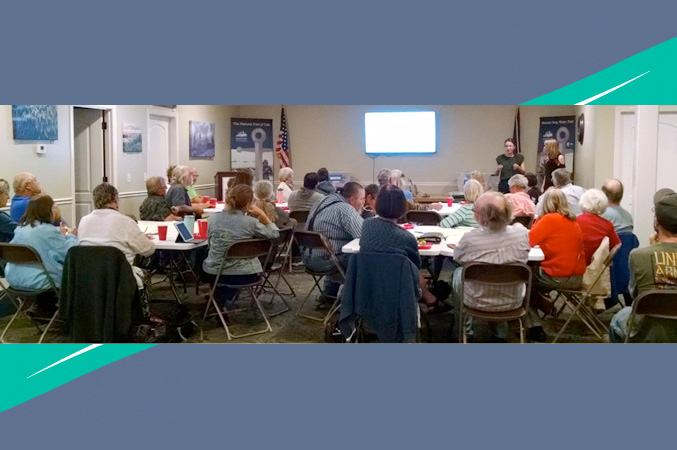
A public meeting was held to solicit input and project participation. (Photo courtesy of Kathleen Vandiver, Ph.D.)
The public learned of the research through a multi-pronged approach that began in late 2017 with a well-advertised and well-attended public meeting. During the meeting, the SED and MIT researchers gathered valuable input and explained the purpose of the research, sample collection procedures, and other information. After the meeting, the team reached out to the community with posters placed at community gathering points, such as restaurants and barber shops; advertisements in the local newspaper; home-addressed flyers advertising free water testing; and messages posted to a Facebook page and the tribe’s internal e-messaging board.
After community members joined the study, they collected water samples from their homes. The SED researchers then brought the samples to MIT for analysis. After the analysis, data and remedial action information were shared with each participant individually and through two public meetings led by the MIT and SED researchers to help inform public health decisions.
Paving the Way for Public Action
More than 300 households, representing 29% of homes in the region, participated in the study over 11 months. Vandiver attributes this success, as compared to similar community-engaged research projects in which fewer people participated, to the SED researchers’ roles in building trust among the communities about the project, the face-to-face meetings, the direct outreach, and the factors listed above.
“Both scientists and residents trust the data that was returned,” said Vandiver. “That’s pretty significant because it paves the way for meaningful public action. I think the study provides a great baseline in establishing what’s possible for participatory science.”
The community’s enthusiasm for the study didn’t stop with the end of the project. Participants expressed interest in continuing the partnership and measuring other substances in the municipal drinking water. Both the MIT Center for Environmental Health Sciences and the Superfund Research Program have been invited back to work with the SED to measure other chemicals in the drinking water. Although the sampling methods will be more challenging than they were previously, everyone is looking forward to working together again.
New Review Uncovers Effective Elements of Environmental Justice Participatory Research
While some participatory research projects have effectively addressed structural causes of health risk in environmental justice communities, many such projects fail to create lasting changes. A recently published review, Participatory Research for Environmental Justice: A Critical Interpretive Synthesis, examines which elements of participatory research effectively prompt structural change. The authors analyzed peer-reviewed papers to assess correlations between study design elements and structural change outcomes. Of the 154 case studies that were included in the analysis, 26 resulted in a structural change outcome. The authors concluded that the important elements of these studies were that community members held formal leadership roles, project design included decision-makers and policy goals, and long-term partnerships were sustained through multiple funding mechanisms.
National Environmental Health Association Annual Report Now Available
The National Environmental Health Association recently released its 2020 annual report. The report highlights the association’s 2020 milestones, including starting a strategic planning effort and developing a new vision statement: Healthy Environments, Protected Communities, Empowered Professionals. It also details the association’s capacity building efforts, including offering education to environmental health professionals on topics such as environmental health and land reuse. Information about the Journal of Environmental Health, the association’s partnerships and outreach, and membership is also contained in the report.
Research Provides Insight Into How Rural Populations Use and Trust Health Information
Effective health messaging should be tailored to its target audience, both in terms of content and dissemination strategies. For example, rural residents may get health information through different sources than people who live in urban areas. Additionally, rural residents may have unique health concerns, such as heavy metal exposure if they live near mining sites. To create effective health messaging, it is important to understand how different people use and trust health information, which they may use to recognize symptoms or find health care. Recently, researchers surveyed residents of rural Appalachia to learn about where they get their health information and how trustworthy those sources are. The researchers found that rural residents frequently used nurses, doctors, and websites to seek health information and trusted these sources, while traditional media was used less and trusted less. The authors, who present their findings in greater detail in the paper, Health Information Source Use and Trust Among a Vulnerable Rural Disparities Population, conclude that different sources of health information are not equally used or trusted by people from rural populations, which has implications for health campaign message dissemination and interventions.
NIH to Enhance Tribal Engagement Efforts for Precision Medicine Research
NIH will expand and strengthen its commitments to include American Indian and Alaska Native people in the All of Us research program, which aims to find more precise ways to prevent and treat disease. NIH gathered input from tribal leadership over nearly two years, and based on that input, will initiate specialized education efforts for researchers, take steps to ensure the perspectives and needs of American Indian and Alaska Native communities are integrated into the All of Us program, and support ongoing engagement activities with Tribal Nations to pave the way for expanded collaborations in the future. The education efforts will include training for researchers on the responsible use of American Indian and Alaska Native data and workshops to learn more about tribal communities’ research priorities. The All of Us program’s tribal consultation was one of the most extensive that NIH has held, and it encompassed events across the country, a formal request for information, and comment periods for tribal leaders. Read more about NIH’s efforts to enhance tribal engagement in the All of Us program in the recent news release. Learn more about the NIH Tribal Health Research Office and its work to strengthen and ensure meaningful tribal engagement.
Nominations Now Open for Best Environmental Justice Paper Award
The North American Chapter of the International Society for Environmental Epidemiology is now accepting nominations for the best environmental justice paper published in a peer-reviewed journal. The award recognizes environmental justice research excellence, and criteria for the award include innovation, creativity, or originality; quality of data, analysis, presentation, and argument; impact; and relevance to environmental justice goals. To be eligible, papers must have been published between 2018 and 2020, and the first author must be a member of the North American Chapter of the International Society for Environmental Epidemiology. Nominations are due by May 15, 2021, and instruction on nominations can be found on the award announcement page.
Environmental Health Perspectives Journal Launches Early Career Researcher Initiative
The journal Environmental Health Perspectives launched an Early Career Researcher Initiative that offers valuable experiences and learning opportunities to early career researchers across the various stages of scholarly publishing, including authorship, peer review, and manuscript editing. The initiative’s advisory panel is focused on researching and providing input on activities that may be valuable to individuals in the early stages of their careers. As an initial step, the journal is encouraging established peer reviewers to mentor an early career researcher during the review process. Reviewers planning to conduct a mentored peer review should contact the journal at [email protected] so that the early career researchers can receive credit for the reviews they complete and can be added to the journal’s reviewer pool.
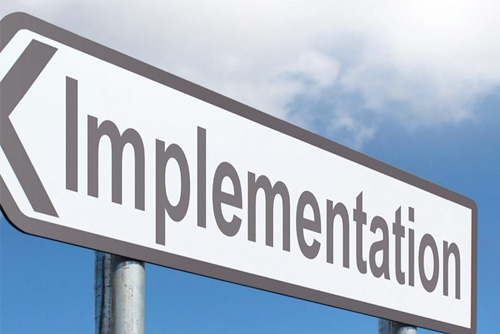
PEPH Environmental Health Chat Podcast Series
Using Implementation Science to Move Environmental Health Discoveries into the Real World
PEPH Environmental Health Chat Podcast Series
Using Implementation Science to Move Environmental Health Discoveries into the Real World
You can find more podcasts on the Environmental Health Chat webpage or subscribe to the series on iTunes. We want your feedback! Send comments and ideas for future podcasts to [email protected].

PEPH Grantee Highlight
Natalie Sampson, Ph.D.
Natalie Sampson, Ph.D., who researches social and environmental determinants of health, is passionate about how land use and infrastructure decisions affect public health. Many infrastructure decisions get made without community input and outside the sphere of public health. Sampson is bridging the gap between land use policymakers and communities by rethinking environmental decision-making. She leads the Community Engagement Core at the Michigan Center on Lifestage Environmental Exposures and Disease, which facilitates multi-directional interaction between researchers, policymakers, and communities. As part of her efforts to bring public health concerns into infrastructure planning, Sampson partnered with the Southwest Detroit Community Benefits Coalition to conduct a survey to understand community concerns related to a major bridge construction project. She also co-founded the Environmental Health Research-to-Action Youth Academy, which builds community capacity to address environmental racism. You can read more about the community engagement around the bridge project in Sustained Community Mobilization Leads to Neighborhood Benefits.
Funding Opportunites
Notice of Special Interest (NOSI): Administrative Supplements for Workforce Development at the Interface of Information Sciences, Artificial Intelligence and Machine Learning (AI/ML), and Biomedical Sciences
Provides Administrative Supplements to certain institutional research training, career development, or research education awards. NIEHS-funded applicants for this supplement must have a Ruth L. Kirschstein National Research Service Award Institutional Research Training Grant (T32). The funds will support the development and implementation of curricular or training activities at the interface of information science, AI/ML, and biomedical sciences to develop the competencies and skills needed to make biomedical data findable, accessible, interoperable, and reusable, and AI/ML-ready. For the purposes of this Notice, AI/ML is inclusive of machine learning, deep learning, and neural networks.
Deadline: May 14, 2021
Intervention Research to Improve Native American Health (R01 Clinical Trial Optional)
Supports research on interventions to improve health in Native American (NA) populations. This includes 1) etiologic research, where there is a significant gap in knowledge, that will directly inform intervention development or adaptations, 2) research that develops, adapts, or tests the efficacy or effectiveness of health promotion and disease prevention interventions, 3) research that tests culturally informed treatment or recovery interventions and 4) where a sufficient body of knowledge on intervention efficacy exists, research on dissemination and implementation that develops and tests strategies to overcome barriers to the adoption, integration, scale-up, and sustainability of effective interventions. Through this initiative, intervention and related research is sought to build upon community knowledge, resources, and resilience to test science-based, culturally appropriate solutions to reduce morbidity and mortality through identification and remediation of precursors to diseases and disorders and through culturally informed treatment.
Deadline: May 17, 2021; May 17, 2022; May 17, 2023
Letter of Intent: Due 30 days prior to the application due date
Notice of Special Interest (NOSI): Support for Existing Data Repositories to Align With Findability, Accessibility, Interoperability, and Reuse Principles; and Transparency, Responsibility, User Community, Sustainability, and Technology Principles; and Ev
Provides support for existing NIH-supported repositories to improve their adoption of the Findable, Accessible, Interoperable, and Reusable (FAIR) and Transparency, Responsibility, User community, Sustainability, Technology (TRUST) principles and to develop ways to measure their effectiveness to the research communities they serve. Prospective applicants are required to conduct a self-assessment to identify gaps or deficiencies in “FAIR”-ness and “TRUST”-worthiness that are unique to their data resource and consider which metrics could be implemented for evaluation of usage, utility, and impact. Based on the self-assessment, applicants must identify how they would improve the impact of their unique data resource and describe how their proposed work will increase usage, benefit their respective communities, and allow for broader use.
Deadline: May 20, 2021
Notice of Special Interest (NOSI): Emergency Competitive Revisions for Community-engaged COVID-19 Testing Interventions Among Underserved and Vulnerable Populations – RADx-UP Phase II (Emergency Supplement - Clinical Trial Optional)
Provides an expedited funding mechanism to support Phase II of the Rapid Acceleration of Diagnostics – Underserved Populations (RADxSM-UP) initiative. These two-year Testing Research Projects will (1) expand the scope and reach of RADxSM-UP testing interventions to reduce COVID-19 disparities among underserved and vulnerable populations and (2) address scientific questions on interventions to increase access and uptake of COVID-19 testing given the increasing availability of SARS-CoV-2 vaccines. Phase II projects will apply scientific knowledge gained in 2020 and 2021 to develop and evaluate interventions with the goal of conducting testing to decrease disparities that contribute to the increased risk of COVID-19 infections, hospitalizations, and mortality. Projects will help to understand and address disparities in testing and the effects of testing combined with other mitigation strategies on infection rates, transmission, and outcomes. Applicants are encouraged to develop research or engagement partnerships with the Community Engagement Alliance (CEAL) Against COVID-19 Disparities initiatve, where geographically appropriate.
Deadline: May 24, 2021
Notice of Special Interest (NOSI): Administrative Supplements to Support Collaborations to Improve the Artificial Intelligence and Machine Learning (AI/ML)-Readiness of NIH-Supported Data
Provides Administrative Supplements to active grants which are intended to support collaborations that bring together expertise in biomedicine, data management, and AI/ML. This initiative is aligned with the NIH Strategic Plan for Data Science, which describes actions aimed at modernizing the biomedical research data ecosystem and making data Findable, Accessible, Interoperable, and Reusable (FAIR), with high impact for open science. For the purposes of this Notice, AI/ML is inclusive of machine learning, deep learning, and neural networks.
Deadline: May 26, 2021
Support for Research Excellence (SuRE) Award (R16 Clinical Trial Not Allowed)
The purpose of SuRE awards is to provide research grant support for faculty investigators who have prior experience in leading externally-funded, independent research but are not currently funded by any NIH Research Project Grants with the exception of SuRE or SuRE-First awards. Awards are open to institutions that receive no more than $6 million per year from NIH Research Project Grants and additionally enroll at least 25% of undergraduate students supported by Pell grants, or are an accredited medical/health professional school with a historical mission statement that explicitly states that it was founded to educate students from nationally underrepresented backgrounds.
Deadlines: May 26, 2021; May 26, 2022; May 26, 2023
Immune Development in Early Life (IDEaL) (U01 Clinical Trial Not Allowed)
Supports research to define the mechanisms regulating the establishment, development, and maintenance of immunity throughout childhood, including the impact of pathogenic or commensal microbes or vaccination against infectious diseases, allergens, or environmental pollutants on immune ontogeny and function. This program will establish collaborations among immunologists, neonatologists, pediatricians, systems biologists, and microbiologists to expand our knowledge of the developing immune system. Knowledge obtained through this program may be applied to the design of improved vaccines and immunotherapies to combat infections or treat/prevent immune-mediated diseases in this vulnerable population.
Deadline: June 4, 2021
Letter of Intent: Due 30 days prior to the application due date
Immune Development in Early Life (IDEaL) (U19 Clinical Trial Not Allowed)
Supports research to define the mechanisms regulating the establishment, development, and maintenance of immunity throughout childhood, including the impact of pathogenic or commensal microbes or vaccination against infectious diseases, allergens, and environmental pollutants on immune ontogeny and function. This program will establish collaborations among immunologists, neonatologists, pediatricians, systems biologists, and microbiologists to expand our knowledge of the developing immune system. Knowledge obtained through this program may be applied to the design of improved vaccines and immunotherapies to combat infections or treat/prevent immune-mediated diseases in this vulnerable population.
Deadline: June 4, 2021
Letter of Intent: Due 30 days prior to the application due date
Addressing Health Disparities Among Immigrant Populations Through Effective Interventions (R01 Clinical Trial Optional)
Supports research to design and implement effective interventions to enhance health advantages and reduce the health disparities among U.S. immigrant populations, particularly migrant workers, recent and first-generation immigrants. This announcement calls for multidisciplinary/multilevel research focusing on the design and implementation of effective interventions that will address immigrant-specific factors to reduce health disparities. A framework to demonstrate the multidomain, multilevel factors that may influence health disparities is available here. A life-course perspective is encouraged with interventions focusing attention on transition points across the lifespan and associated risk and protective factors for immigrant populations. Projects should involve collaborations among relevant stakeholders in U.S. immigrant population groups, such as researchers, community organizations, healthcare providers, public health organizations, consumer advocacy groups, and faith-based organizations. Projects must focus on immigrants from one or more NIH-designated populations that experience health disparities in the U.S., which include racial and ethnic minorities (Blacks or African Americans, Hispanics/Latinos, Asian Americans, and Pacific Islanders).
Deadlines: February 5, 2021; June 5, 2021; October 5, 2021
Addressing the Etiology of Health Disparities and Health Advantages Among Immigrant Populations (R01 Clinical Trial Not Allowed)
Supports innovative research to understand factors uniquely associated with the immigration experience that contribute to health disparities or health advantages among U.S. immigrant populations, particularly migrant workers, recent and first-generation immigrants. This announcement calls for multidisciplinary research to address the specific underlying causes and mechanisms of health disparities and health advantages. A framework to demonstrate the multidomain, multilevel factors that may influence health disparities is available here. Projects should involve collaborations among relevant stakeholders in U.S. immigrant population groups, such as researchers, community leaders and organizations, public health organizations, consumer advocacy groups, faith-based organizations, and healthcare providers. Projects must focus on immigrants from one or more NIH-designated populations that experience health disparities in the U.S., which include racial and ethnic minorities (Blacks or African Americans, Hispanics/Latinos, Asian Americans, and Pacific Islanders).
Deadlines: February 5, 2021; June 5, 2021; October 5, 2021
Dissemination and Implementation Research in Health (R01 Clinical Trial Optional)
Supports innovative approaches to identifying, understanding, and developing strategies for overcoming barriers to the adoption, adaptation, integration, scale-up and sustainability of evidence-based interventions, tools, policies, and guidelines. Additionally, there is a benefit in understanding circumstances that create a need to stop or reduce (“de-implement”) the use of interventions that are ineffective, unproven, low-value, or harmful. This FOA invites research grant applications that will identify, develop, test, evaluate, and/or refine strategies to disseminate and implement evidence-based practices (e.g. behavioral interventions; prevention, early detection, diagnostic, treatment and disease management interventions; quality improvement programs) into public health, clinical practice, and community (e.g., workplace, school, place of worship) settings. Studies to advance dissemination and implementation research methods and measures are also encouraged.
Deadlines: February 5, 2021; June 5, 2021; October 5, 2021
Letter of Intent: Due 30 days prior to the application due date
Building Interdisciplinary Research Careers in Women's Health (BIRCWH) (K12 Clinical Trial Optional)
The NIH Office of Research on Women's Health invite institutional career development award applications for BIRCWH Career Development Programs. These support mentored research career development of junior faculty members, known as BIRCWH Scholars, who have recently completed clinical training or postdoctoral fellowships, and who will be engaged in interdisciplinary basic, translational, behavioral, clinical, and/or health services research relevant to the health of women and where appropriate, the use of both sexes to better understand the influence of sex as a biological variable on health and disease.
Deadline: June 11, 2021
Letter of Intent: May 11, 2021
Transition to Independent Environmental Health Research (TIEHR) Career Award (K01 Independent Basic Experimental Studies with Humans Required)
The Transition to Independent Environmental Health Career Award is a 3-year bridge scholar development program for newly independent faculty who intend to pursue research careers in environmental health sciences. This funding opportunity is designed for applicants proposing to serve as the lead investigator of an independent clinical trial, a clinical trial feasibility study, or a separate ancillary study to an existing trial. For applicants not planning independent basic experimental studies with humans, there are two companion funding opportunities. Applicants planning independent clinical trials with specific application towards processes or with products in mind, must apply to the companion funding opportunity announcement, Transition to Independent Environmental Health Research (TIEHR) Career Award (K01 Clinical Trial Required). Applicants not planning an independent clinical trial, or proposing to gain research experience in a clinical trial led by another investigator, must apply to companion funding opportunity announcement, Transition to Independent Environmental Health Research (TIEHR) Career Award (K01 Clinical Trial Not Allowed). At the conclusion of the career development period the candidates are expected to demonstrate they can successfully compete for research funding in the environmental health sciences. Eligible candidates for the K01 award must have a research or health-professional doctoral degree and must be within three years of their appointment to their first independent faculty position at the time of submission (receipt date) of the application.
Deadlines: June 12, 2021; October 12, 2021
Research on Autism Spectrum Disorders (R01 Clinical Trial Optional)
This award supports research designed to elucidate the etiology, epidemiology, diagnosis, and optimal means of service delivery in relation to Autism Spectrum Disorders (ASD). The Research Project Grant (R01) mechanism supports discrete, specified projects based in scientific areas that represent the investigators’ specific interests and competencies, and that fall within the mission of the participating NIH Institutes and Centers. Additional companion funding opportunities are available for a Small Research Grant (R03) which supports small, discrete, well-defined projects that can be completed in two years and that require limited resources (Research on Autism Spectrum Disorders (R03 Clinical Trial Optional)); and an Exploratory/Developmental Grant (R21) which encourages exploratory/developmental research by providing support for the early and conceptual stages of project development (Research on Autism Spectrum Disorders (R21 Clinical Trial Optional)). Basic research into the pathophysiology of ASD, including research on brain mechanisms, is of special interest. Also, of high priority are clinical and applied investigations that may lead to the development of new treatments and interventions.
Deadlines: June 16, 2021; October 16, 2021
Native American Research Centers for Health (NARCH) (S06 Clinical Trial Optional)
Invites applications from federally recognized Tribes and Tribal organizations for the Native American Research Centers for Health initiative, which supports biomedical research and career enhancement opportunities to meet health needs prioritized by American Indian or Alaska Native communities. The initiative also supports research capacity building and the development of research infrastructure to enhance the biomedical research capabilities of these communities.
Deadline: June 24, 2021
Letter of Intent: Due 30 days prior to the application due date
Emergency Award: RADx-UP - Social, Ethical, and Behavioral Implications (SEBI) Research on Disparities in COVID-19 Testing Among Underserved and Vulnerable Populations (U01 Clinical Trials Optional)
Uses an emergency U01 mechanism to support the Rapid Acceleration of Diagnostics-Radical (RADxSM-UP) initiative. Research proposed in response to this FOA should address social, ethical, behavioral, structural, environmental, historical and policy factors, including structural racism within public health and health care delivery systems, that lead to disparities in access to and uptake of COVID-19 testing in underserved and/or vulnerable populations. SEBI applications are not required to conduct or administer COVID-19 testing and should not propose the actual administration COVID-19 testing or vaccination as the primary activity or aim.
Deadline: July 7, 2021
Emergency Awards: Community-engaged COVID-19 Testing Interventions Among Underserved and Vulnerable Populations – RADx-UP Phase II (U01 Clinical Trial Optional)
Provides an expedited funding mechanism to support Phase II of the Rapid Acceleration of Diagnostics – Underserved Populations (RADxSM-UP) initiative. These two-year Testing Research Projects will (1) expand the scope and reach of RADxSM-UP testing interventions to reduce COVID-19 disparities among underserved and vulnerable populations and (2) address scientific questions on interventions to increase access and uptake of COVID-19 testing given the increasing availability of SARS-CoV-2 vaccines. Phase II projects will apply scientific knowledge gained in 2020 and 2021 to develop and evaluate interventions with the goal of conducting testing to decrease disparities that contribute to the increased risk of COVID-19 infections, hospitalizations, and mortality. Projects will help to understand and address disparities in testing and the effects of testing combined with other mitigation strategies on infection rates, transmission, and outcomes. Applicants are encouraged to develop research or engagement partnerships with the Community Engagement Alliance (CEAL) Against COVID-19 Disparities initiative, where geographically appropriate.
Deadline: July 7, 2021
Hubs of Interdisciplinary Research and Training in Global Environmental and Occupational Health – Research (Collaborative U01 Clinical Trial Optional)
Solicits applications for research projects in linked Hubs of Interdisciplinary Research and Training in Global Environmental and Occupational Health (GEOHealth). This collaborative award supports research at an institution in a Low- or Middle-Income Country (LMIC), while this FOA (Hubs of Interdisciplinary Research and Training in GEOHealth – Research Training (Collaborative U2R Clinical Trial Optional)) supports research training at a U.S. institution. Applications submitted in response to both FOAs must demonstrate extensive coordination between these two awards. The overall objective of the GEOHealth program is to support the development of institutions in LMICs that will serve as regional hubs for collaborative research, data management, research training, curricula and outreach material development, and policy support around high priority local, national, and regional environmental and occupational health threats. NIEHS is interested in supporting research and research training in LMICs that address or seek to understand how exposures to toxic environmental insults alter biologic processes, are linked to disease initiation, progression or morbidity, and activities that lead to the development of prevention and intervention strategies to reduce environmentally induced diseases. Topics and disease outcomes of particular interest include airway diseases, cardiovascular disease and neurological disorders, children’s environmental health and the unique vulnerability of developing children to harmful environmental exposures including outcomes such as low birth weight or premature birth, climate change and human health, and research exploring exposures during early life stages or critical windows of susceptibility that may directly or indirectly affect the risk of developing disease. NIEHS supports research examining health consequences due to the interplay between environmental exposures and cofactors such as infectious agents or social factors that contribute to environmental health disparities.
Deadline: July 8, 2021
Letter of Intent: Due 30 days prior to the application due date
NIH Countermeasures Against Chemical Threats (CounterACT) Early-stage Investigator Research Award (R21 Clinical Trial Not Allowed)
Recruits Early Stage Investigators to pursue research programs of interest to the NIH Chemical Countermeasures Research Program under the NIH CounterACT grant/cooperative agreement program. Projects may be exploratory, applied, proof of principle, or high risk-high impact research to discover safe and effective therapeutics to mitigate toxicities resulting from exposures to highly toxic chemicals. No preliminary data are required, expected, or encouraged. However, if available, minimal preliminary data are allowed. All preliminary data should be clearly marked and limited to one-half page, which may include one figure. Projects will have an extended level of support (3 years) and are expected to generate preliminary data that would facilitate the development of competitive applications for more extensive funding support from the NIH CounterACT programs or other related initiatives.
Deadline: July 27, 2021
Letter of Intent: June 27, 2021
Understanding and Addressing the Impact of Structural Racism and Discrimination on Minority Health and Health Disparities (R01 Clinical Trial Optional)
This initiative will support (1) observational research to understand the role of structural racism and discrimination in causing and sustaining health disparities, and (2) intervention research that addresses structural racism and discrimination in order to improve minority health or reduce health disparities. NIEHS is interested in observational research examining the role of structural racism and discrimination as a significant determinant in environmental health disparities, or evidence-based intervention research that mitigates or prevents the negative health outcomes attributable to environmental structural racism and discrimination. Applicants are strongly encouraged to utilize community engaged research approaches and include letters of support from community partners. Applications that demonstrate collaborative (i.e., community-academic partnerships) approaches to understand and/or address the negative health effects of environmental structural racism and discrimination across multiple health disparity communities will be prioritized. Areas of specific interest to NIEHS include, but are not limited to: single or combined environmental exposures affecting the health of communities; health impacts of climate change, extreme weather and natural or human caused disasters; the built environment and greenspace, including green gentrification; studies grounded in community identified concerns around the intersection of environmental structural racism and discrimination and health outcomes; the impact of environmental structural racism and discrimination on health outcomes across the lifespan; and the role of environmental structural racism and discrimination in occupational exposures.
Deadline: August 24, 2021
Letter of Intent Deadline: July 20, 2021
NIH Countermeasures Against Chemical Threats (CounterACT) Research Centers of Excellence (U54 Clinical Trial Optional)
The mission of the NIH CounterACT program is to foster and support research and development of new and improved therapeutics for chemical threats. Chemical threats are toxic chemicals that could be used in a terrorist attack or accidentally released from industrial production, storage or shipping. They include traditional chemical warfare agents, toxic industrial chemicals, pharmaceutical-based agents, and pesticides. The Centers will contain at least three research projects supported by an administrative core, up to three optional scientific cores, a research education core, and a pilot project program to support short-term innovative research and recruitment of new investigators into the field of medical countermeasures research. Each research project must include milestones that create discrete go or no-go decision points in a progressive translational study plan.
Deadlines: September 14, 2021; September 13, 2022; September 12, 2023
Letter of Intent: Due 30 days prior to the application due date
Support for Research Excellence – First Independent Research (SuRE-First) Award (R16 Clinical Trial Not Allowed)
The purpose of SuRE-First awards is to support research grants for faculty investigators who have not had prior independent external research grants. A SuRE-First applicant must identify a scientist based in the U.S. with expertise and an extramural funding record in the proposed field of research to serve as a mentor. SuRE-First-supported projects must have student participation in the execution, analysis, and reporting of the research. Awards are open to institutions that receive no more than $6 million per year from NIH Research Project Grants and additionally enroll at least 25% of undergraduate students supported by Pell grants, or are an accredited medical/health professional school with a historical mission statement that explicitly states that it was founded to educate students from nationally underrepresented backgrounds.
Deadlines: September 28, 2021; September 28, 2022; September 28, 2023
Maximizing the Scientific Value of Existing Biospecimen Collections (R21 Clinical Trial Not Allowed)
Supports research relevant to the mission of the Food and Drug Administration (FDA) – Center for Tobacco Products using existing (publicly available) biospecimens currently stored in repositories in the U.S. This will include, but not be limited to, collections associated with the Population Assessment of Tobacco and Health Study, the National Health and Nutrition Examination Survey, the National Heart, Lung and Blood Institute’s Biologic Specimen and Data Repository Information Coordinating Center, and the Prostate, Lung, Colorectal and Ovarian Cancer Screening Trial. Proposed research should seek to maximize the scientific value of these stored collections and to provide researchers with an opportunity to generate preliminary data for subsequent research proposals. Other publicly available datasets would be considered, depending on analyses to be conducted. These applications need to provide justification why the data set is unique, and the research questions cannot be answered from a publicly available, nationally representative, data set. Research Projects must address the research priorities related to the regulatory authority of the FDA – Center for Tobacco Products.
Deadlines: October 8, 2021; August 8, 2022; March 8, 2023
Letter of Intent: Due 60 days prior to the application due date
Secondary Analyses of Existing Datasets of Tobacco Use and Health (R21 Clinical Trial Not Allowed)
Supports research which conducts an innovative analysis of existing (publicly available) nationally representative U.S. cross-sectional and longitudinal data, to investigate novel scientific ideas and/or to generate new models, systems, tools, methods, or technologies that have the potential for significant impact on biomedical or biobehavioral research in areas relevant to the FDA – Center for Tobacco Products. Other publicly available data sets would be considered depending on the analyses to be conducted; however, nationally representative analyses will receive priority. Applications not using nationally representative data sets will need to provide justification why the data set is unique, and why the research questions cannot be answered from a (publicly available) nationally representative data set. This funding opportunity announcement encourages the analyses of public use datasets that may inform tobacco regulatory actions in the U.S. Research Projects must address the research priorities related to the regulatory authority of the FDA – Center for Tobacco Products.
Deadlines: October 8, 2021; August 8, 2022; March 8, 2023
Letter of Intent: Due 60 days prior to the application due date



